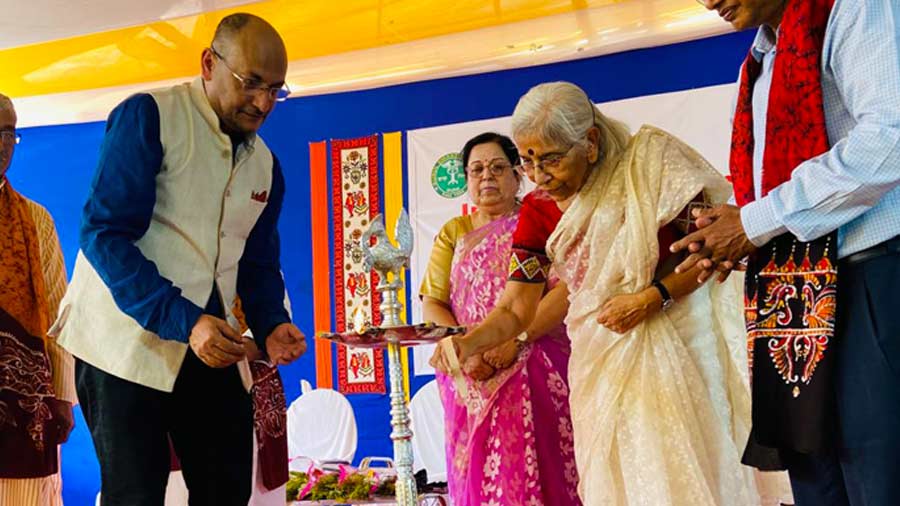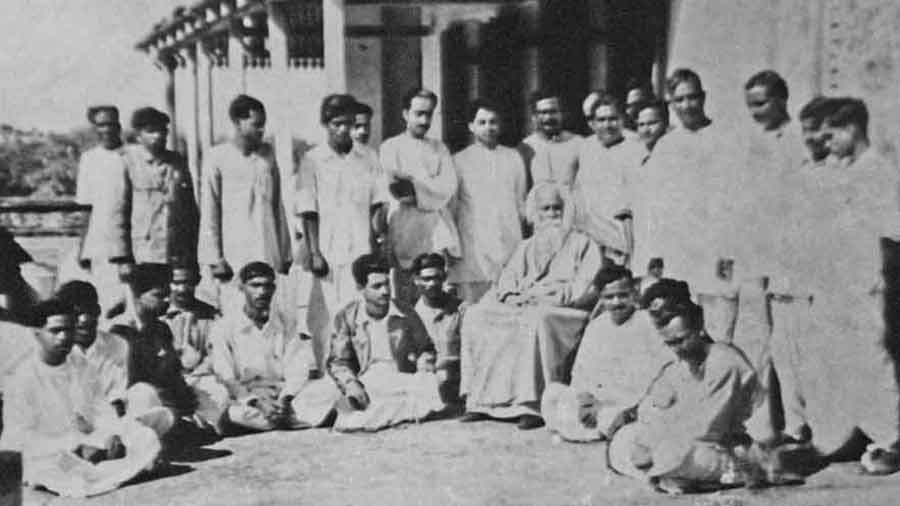A hundred years is a long time! But time stood still in Surul, Birbhum, a district where India’s first Nobel Laureate, Rabindranath Tagore, decided to create a world first. Visva Bharati University – a world first in creating an institution of higher learning that brought the world to India, and India to the world.
My role, as founder trustee of READ (Rural Education and Development) India, was to inaugurate our 53rd community library and resource centre there. The READ model has morphed in the last 15 years, from a community library in the most underserved communities, to becoming, through the pandemic, a skill development and sustainable livelihood hub for “inspiring rural prosperity”. Women in the centres which had sewing machines, stitched, supplied and sold masks through the Covid waves, not only reducing rural mortality but often, making up for the lost factory jobs of their menfolk.
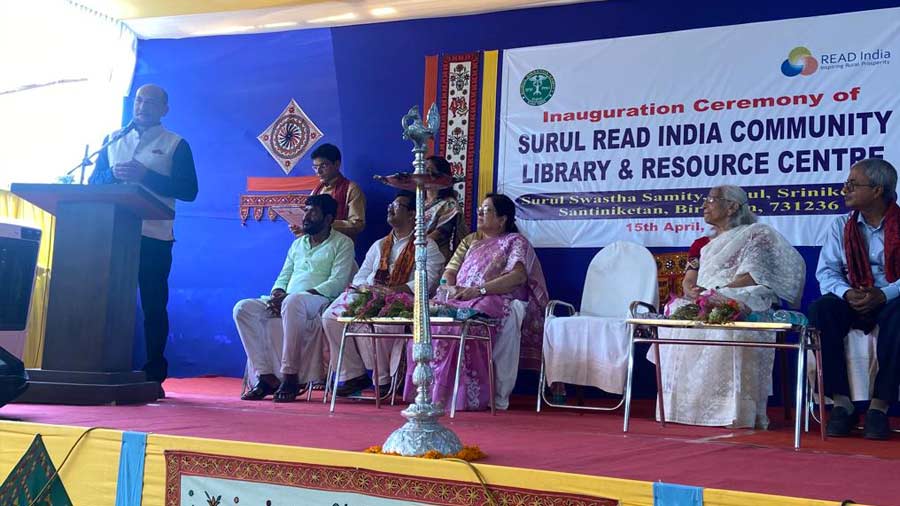
Bakshi addresses the ceremony
Gurudev Tagore had inaugurated the first edition of the centre
Now, imagine for a moment, my sense of awe, when the speaker introducing me mentioned that Gurudev Tagore had inaugurated the first edition of the centre, as a community health delivery sub-system in the form of a society – Surul Swasthya Samiti or Surul (name of village) health society – to serve not only that community but 100 Adivasi villages in the neighbourhood.
It’s not often when you realise that you walk in the footsteps of giants, but the sense of heritage of the institution that is now being restored and built upon by the READ India team, made me aware that I stand on the shoulders of giants, who had walked these bylanes.
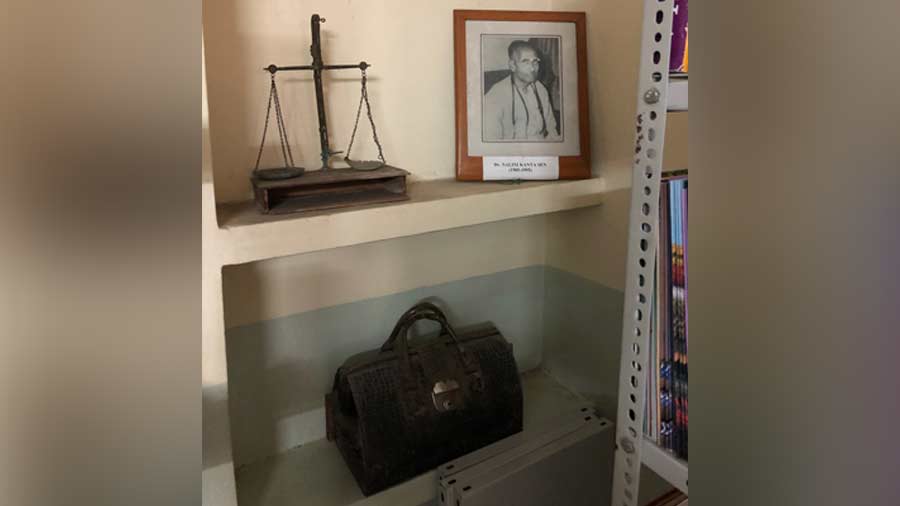
A niche for Nalini Kanta Sen, his portrait, medicine bag and the scales for the medicines he would prepare for his patients
A hundred years ago, this site would have been in the middle of a forest populated by Adivasis who couldn’t have fathomed why the Spanish Flu had wiped out so many of their families and friends.
In fact, through this Covid pandemic, I researched popular literature, only to come across a cropper, on mentions of that influenza virus which wiped out almost 30 per cent of India’s population of that time. The only factoid I found was also mentioned by Chinmay Tumbe in his book, where he referenced Jim Corbett’s book, Man-Eaters of Kumaon. I remembered that passage where Corbett explaining why tigers in the region had become man-eaters had mentioned a mysterious sickness which led the villagers to throw down the bodies from heights to the rivers and water bodies below, which would invariably become tiger prey, and therefore, turn them man-eaters.
I mentioned this in my speech, to an incredulous spellbound audience. When you are living with history around you, it’s not easy to see where you are and when you are. What enthused me was the participation of the village managing committee, who not only put together a cultural programme for Poila Baisakh but also had the municipal councillor and the head of rural outreach of Visva Bharati at the event.
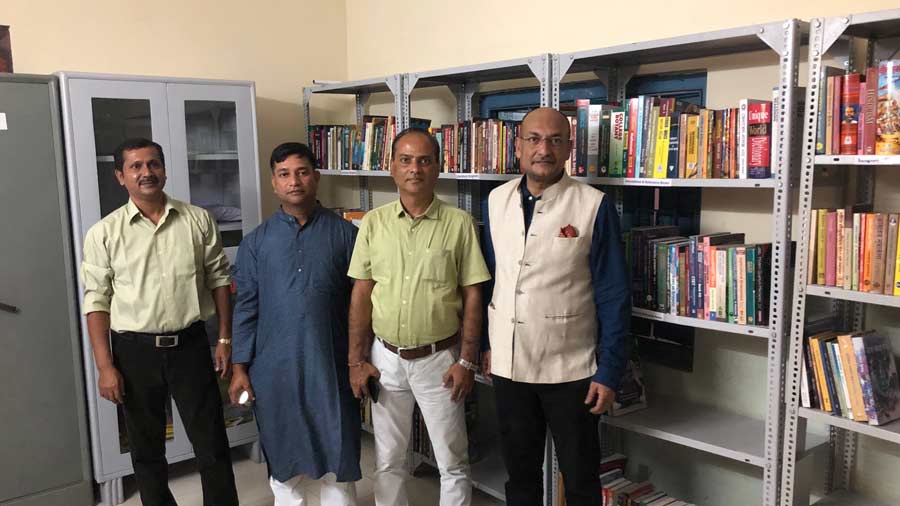
Bakshi with the key movers who will manage the Surul Community Library
Access to knowledge resources delivers education beyond the curriculum
To my mind, this is what is the kernel of success in all READ India projects that I have seen succeed. The model is very simple, access to knowledge resources – reading rooms, books, journals, computers, and the internet – delivers education beyond the curriculum. This creates an opportunity for greater curiosity. Curiosity practised and focussed in any direction creates a skill. Skills that produce goods and services in the real world, deliver sustainable livelihoods. And the rest, needs to remain open to the aspirations and needs of the community where the centre exists. So that the community and the beneficiaries can reach an equilibrium that invests in the local economy and in the process upgrade the dreams and aspirations of the local population to find micro-enterprise and self-employment opportunities that can transform lives in the community using 21st century tools.
I have seen this in action, across 12 states, where READ India has centres, and the eagerness and elan with which rural populations have embraced skill training programs which would give them a pathway to sustainable livelihoods while supporting their own families, their ecosystems, and the natural habitats they live in.
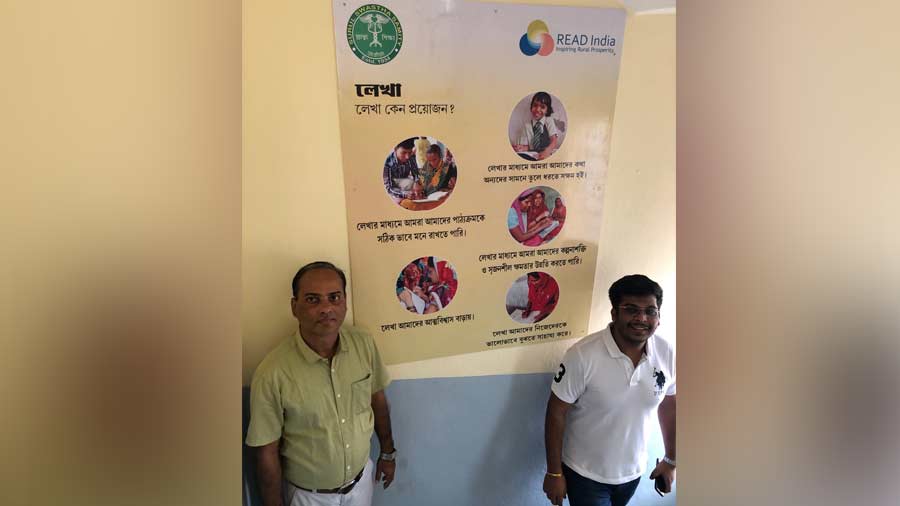
Kamlesh and Shivam, the young architects who project-managed the start of the Surul centre
If it is Kantha embroidery at Surul, West Bengal, it is Chikankari in Barabanki, Uttar Pradesh. It’s Khadi garments in Geejgarh, Alwar, Rajasthan, or it could be dried spices in the forest areas around Sri City, Andhra Pradesh. What stood out through all the video calls I made during the last two years, during lockdowns, to centre heads and beneficiaries at these centres, was the pride of shaping their destinies even in the face of intense adversity, and yet being empowered and engaged enough to ask for more. For instance, 25 of the 52 centres wanted healthcare worker training in addition to digital selling, entrepreneurship, and social media skills training.
Three amazing women who shaped and implemented the vision
As I reflect on the 15-year-old journey that READ has undertaken, a word of appreciation to three amazing women who shaped and implemented the vision would be in place. The first would be the country director, Geeta Malhotra, who has held the fort and built an entire cadre of young leaders who are taking forward the vision and mission of READ India, and in the process bringing positive impact to half a million rural households.
The next would be the founder of the READ Global movement, Toni Neubauer, who started the mission in Nepal, which I had a role in joining and shaping in India, especially as a key contributor to Section 135, and through my early involvement with IICA, designing the program-driven mission mode approach that the CSR Act had mandated.
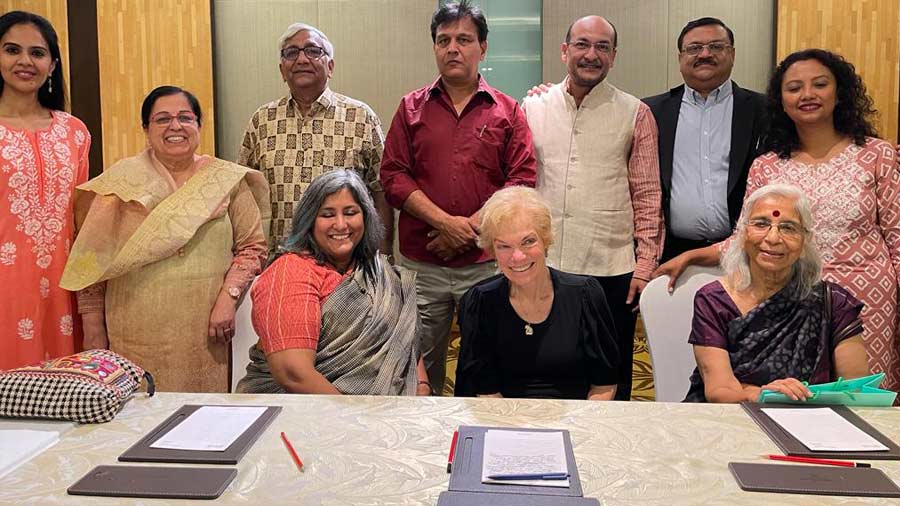
Seated (L-R) Shohini Bhattacharya, Toni Neubauer, founder, Kalpana Dasgupta; Standing (L to R) Smita Rai, Geeta Malhotra, Asis Sanyal, Amitabh Singhal, Jay Vikram Bakshi, Praveen Agarwal, Sanjana Shrestha
And finally, the heart of the library movement, Kalpana Dasgupta, India’s first woman librarian who led the National Library and Raja Rammohun Roy Library Foundation, and whose all-in engagement with READ India and unconditional support to both the cause of universal access to learning and specific focus on women empowerment, has enabled us to create a model that lives in the middle of the community, with their support and reflecting their aspirations.
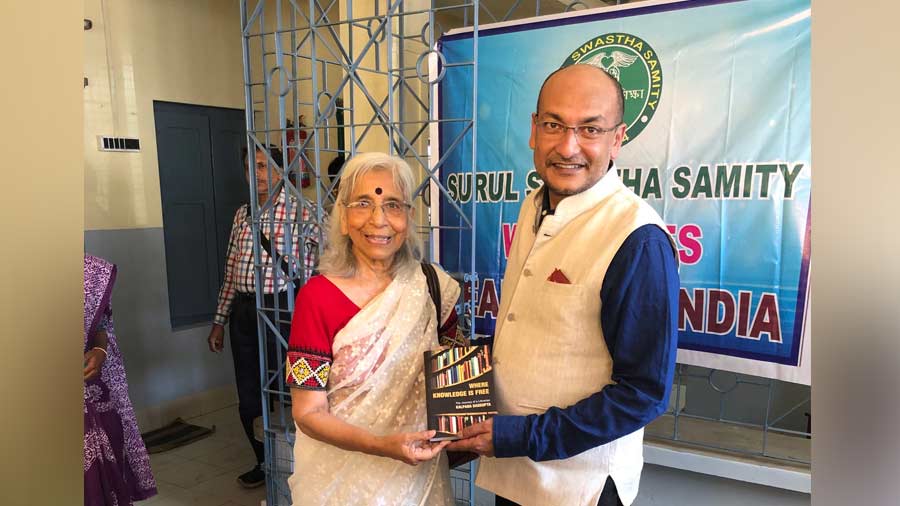
Kalpana Dasgupta, trustee, READ India, with her book ‘Where Knowledge is Free: The Journey of a Librarian’
A hundred years is a long time in history. But with clarity of vision and the sense of purpose built upon a values-based approach, it is also the time and space to architect a new future that is inclusive, planet-centric and equitable in its contribution to the community.
To end with a popular song, written by Tagore, which starts with Gram Chhara Oi Ranga Matir Poth (Walking on the red earth path beyond the village), it is time for today’s young talent to walk these bylanes and footpaths, and find true meaning in helping the most underserved find the path to their creativity and financial freedom.
Jay Vikram Bakshi is founder of READ India. A brand CxO-turned-entrepreneur, Jay mentors start-ups, advices corporate leadership, governments and NGOs on digital and grassroots transformation strategies.
